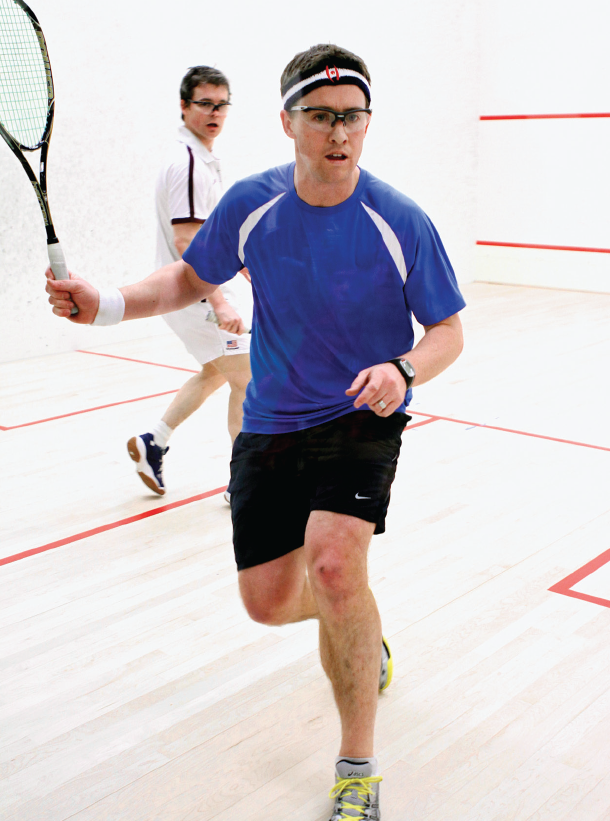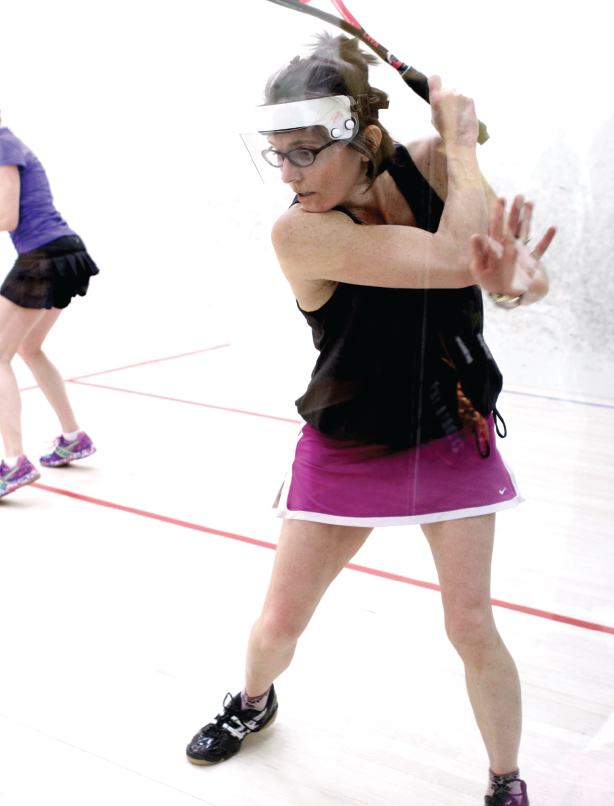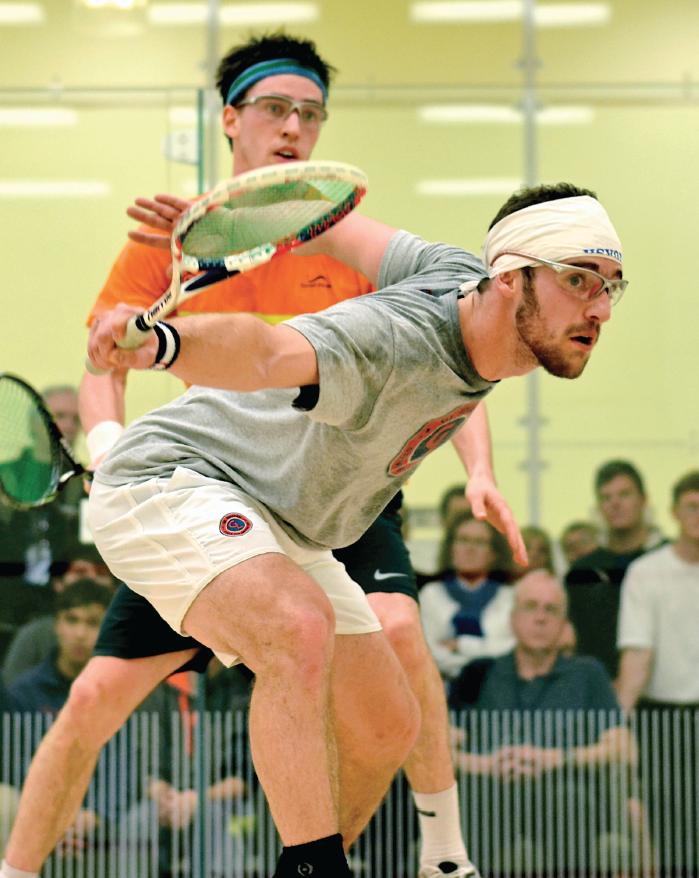
By Jay D. Prince
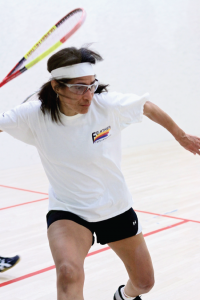
The Masters. An event like no other. Oh wait, that’s golf. But in the US, the same can be said for squash. Why? Because the Masters represents the culmination of another squash season for adults. It marks the passing of time as players continue to work their way through the age groups. And players come back, year after year, even if they’ve never won anything, and especially if they have won. There’s a sense of pride associated with competing and winning. Even more, there’s the renewal of friendships that have developed, for some over the course of 10 years after first being introduced in the 30+ and, for others, those relationships have been growing for decades.
At the Saturday evening social event, I asked Jay Nelson how many finals he will have played in after reaching yet another championship round in Stamford, Connecticut. His response? Simple: “I honestly don’t know. But if I win, it will be my 29th title.”
Nelson didn’t win, but having a shot at a 29th title is CRAZY!! I’ve been saying for years that all of my attempts at the Masters has simply been training for the 60’s and 65’s, hoping that my body will hold up and those who have been so much better than me will eventually slow down enough for me to taste what it feels like to win. But to keep Nelson’s pace, that would mean I’d be looking for my 29th title when I’m approaching 90-years-old. Hmmm, seems highly unlikely. But, that’s what keeps us coming back.
A number of things gave the 2013 edition of the Masters a different feel. And that started with the enormity of the Chelsea Piers facilities in Stamford, CT. Two hockey rinks, two swimming pools, gymnastics, indoor lacrosse and soccer, tennis courts…and a wonderful 10-singles and 1-doubles squash facility made for a different experience than in recent years. While the colleges feature sufficient courts, the amenities of clean and “grown up” locker rooms and eating areas makes a huge difference for the age group players.
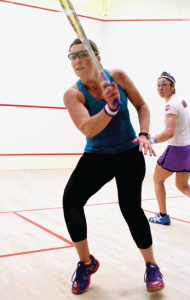
Once the jaw-dropping reaction of simply walking through the halls at Chelsea Piers had passed, the tournament draws themselves brought surprises unlike any we’ve seen in recent memory—as well as a few renewed rivalries.
Not only did the aforementioned Nelson come up short, but Steve Wren ran into a buzz-saw in the 45+ that nobody saw coming prior to the event. Anders Walhstedt, the Swedish transplant who was highly-respected on the professional tour 20 years ago, crashed the 45+ party and first knocked out the No. 2 seed and 2012 runner-up, Sean Ryan, in a three-game semifinal, followed by a convincing sweep of Wren as well.
The men’s 60+ and 65+ were also head-turners. Atlanta’s Tom Rumpler seemed a likely prohibitive favorite as the top seed, but Bruce Brickman of Greenwich (CT) had other plans. Brickman, who reached the 60+ semifinals in 2012, where he fell in five games to Don Sheer, sent Rumpler packing in this year’s semis by upsetting him in five games after falling behind 2-1. In the final, Brickman exacted his revenge on Sheer by dropping him in five games. For Sheer, the result was back-to-back runner-up finishes after winning the title in 2011.
On the women’s side of the Championships, Brooklyn’s (NY) Juliana Lilien put in overtime by playing two divisions. While many of the women do play more than one draw, Lilien began the weekend as the top-seed and defending champion in the 40+, and she was the No. 2 seed in the 45+. By the time things were settled, Lilien had defended her 40+ title by defeating Seattle’s (WA) Shabana Khan in the final for the second year in a row, and Lilien had upset the 2012 45+ winner, Canada’s top-seeded Louise Lefebvre. Lilien’s run through the two divisions resulted in a “clean sheet”—avoiding the loss of a single game.
Finally, Susan Lawrence (King of Prussia, PA) needed five gruelling games to upend the defending champion and No. 1 seed, Beth Fedorowich, in the Women’s 50+ final. It’s been quite a 12-month stretch for Lawrence. Last summer, the Jamaican squash phenom also needed five-games in her first round of the World Masters Championships to defeat Fedorowich, and then ran the table to win the title, upending the No. 3 and No. 2 seeds in the quarters and semis, respectively, and then shut out a 5/8 seed in the 25-minute final.
